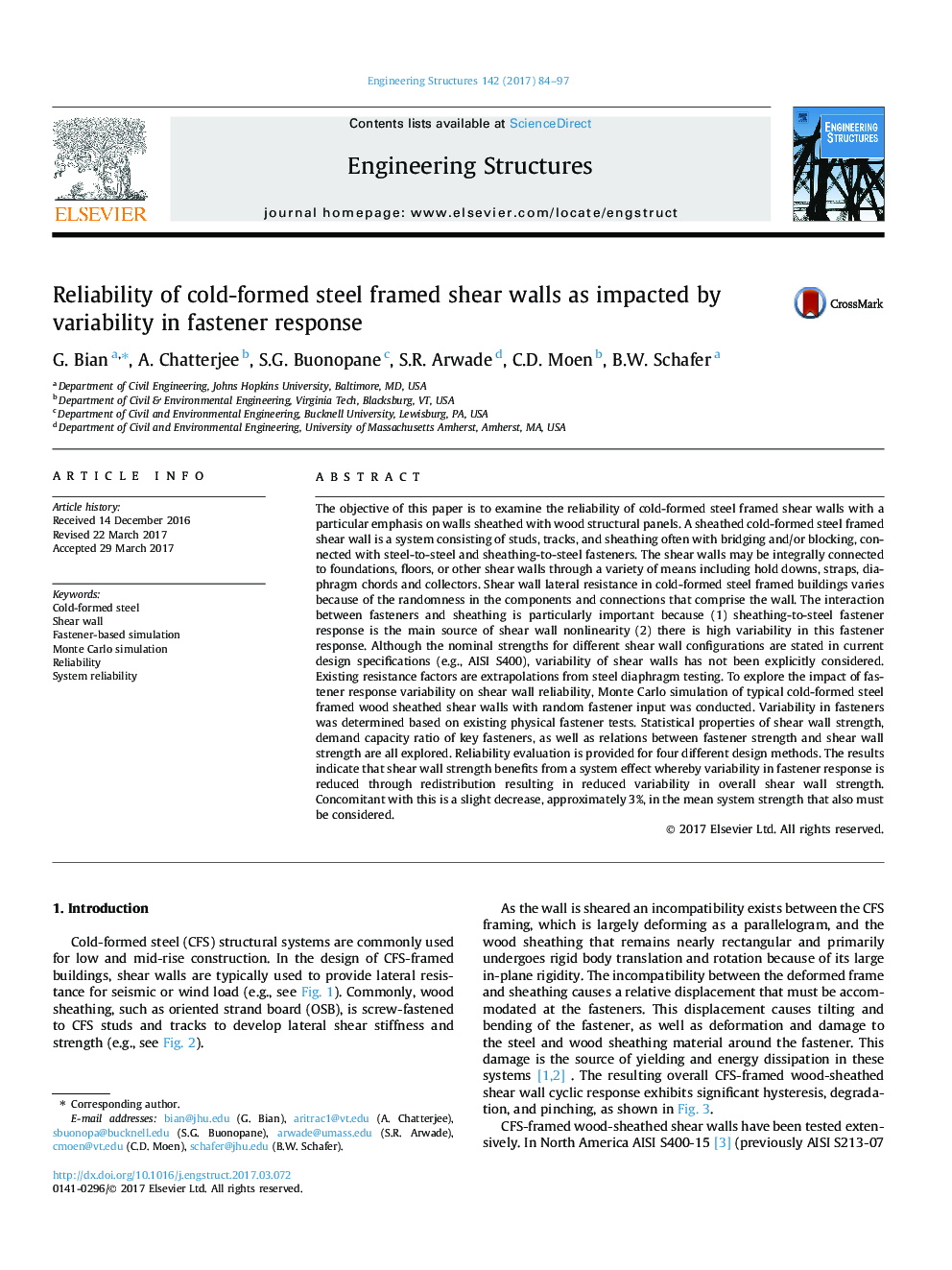| کد مقاله | کد نشریه | سال انتشار | مقاله انگلیسی | نسخه تمام متن |
|---|---|---|---|---|
| 4919959 | 1429085 | 2017 | 14 صفحه PDF | دانلود رایگان |
عنوان انگلیسی مقاله ISI
Reliability of cold-formed steel framed shear walls as impacted by variability in fastener response
ترجمه فارسی عنوان
قابلیت اطمینان دیوارهای برشی قاب های فولادی سرد به گونه ای تحت تأثیر تغییرات در پاسخ گیرنده قرار گرفته است
دانلود مقاله + سفارش ترجمه
دانلود مقاله ISI انگلیسی
رایگان برای ایرانیان
کلمات کلیدی
موضوعات مرتبط
مهندسی و علوم پایه
علوم زمین و سیارات
مهندسی ژئوتکنیک و زمین شناسی مهندسی
چکیده انگلیسی
The objective of this paper is to examine the reliability of cold-formed steel framed shear walls with a particular emphasis on walls sheathed with wood structural panels. A sheathed cold-formed steel framed shear wall is a system consisting of studs, tracks, and sheathing often with bridging and/or blocking, connected with steel-to-steel and sheathing-to-steel fasteners. The shear walls may be integrally connected to foundations, floors, or other shear walls through a variety of means including hold downs, straps, diaphragm chords and collectors. Shear wall lateral resistance in cold-formed steel framed buildings varies because of the randomness in the components and connections that comprise the wall. The interaction between fasteners and sheathing is particularly important because (1) sheathing-to-steel fastener response is the main source of shear wall nonlinearity (2) there is high variability in this fastener response. Although the nominal strengths for different shear wall configurations are stated in current design specifications (e.g., AISI S400), variability of shear walls has not been explicitly considered. Existing resistance factors are extrapolations from steel diaphragm testing. To explore the impact of fastener response variability on shear wall reliability, Monte Carlo simulation of typical cold-formed steel framed wood sheathed shear walls with random fastener input was conducted. Variability in fasteners was determined based on existing physical fastener tests. Statistical properties of shear wall strength, demand capacity ratio of key fasteners, as well as relations between fastener strength and shear wall strength are all explored. Reliability evaluation is provided for four different design methods. The results indicate that shear wall strength benefits from a system effect whereby variability in fastener response is reduced through redistribution resulting in reduced variability in overall shear wall strength. Concomitant with this is a slight decrease, approximately 3%, in the mean system strength that also must be considered.
ناشر
Database: Elsevier - ScienceDirect (ساینس دایرکت)
Journal: Engineering Structures - Volume 142, 1 July 2017, Pages 84-97
Journal: Engineering Structures - Volume 142, 1 July 2017, Pages 84-97
نویسندگان
G. Bian, A. Chatterjee, S.G. Buonopane, S.R. Arwade, C.D. Moen, B.W. Schafer,
